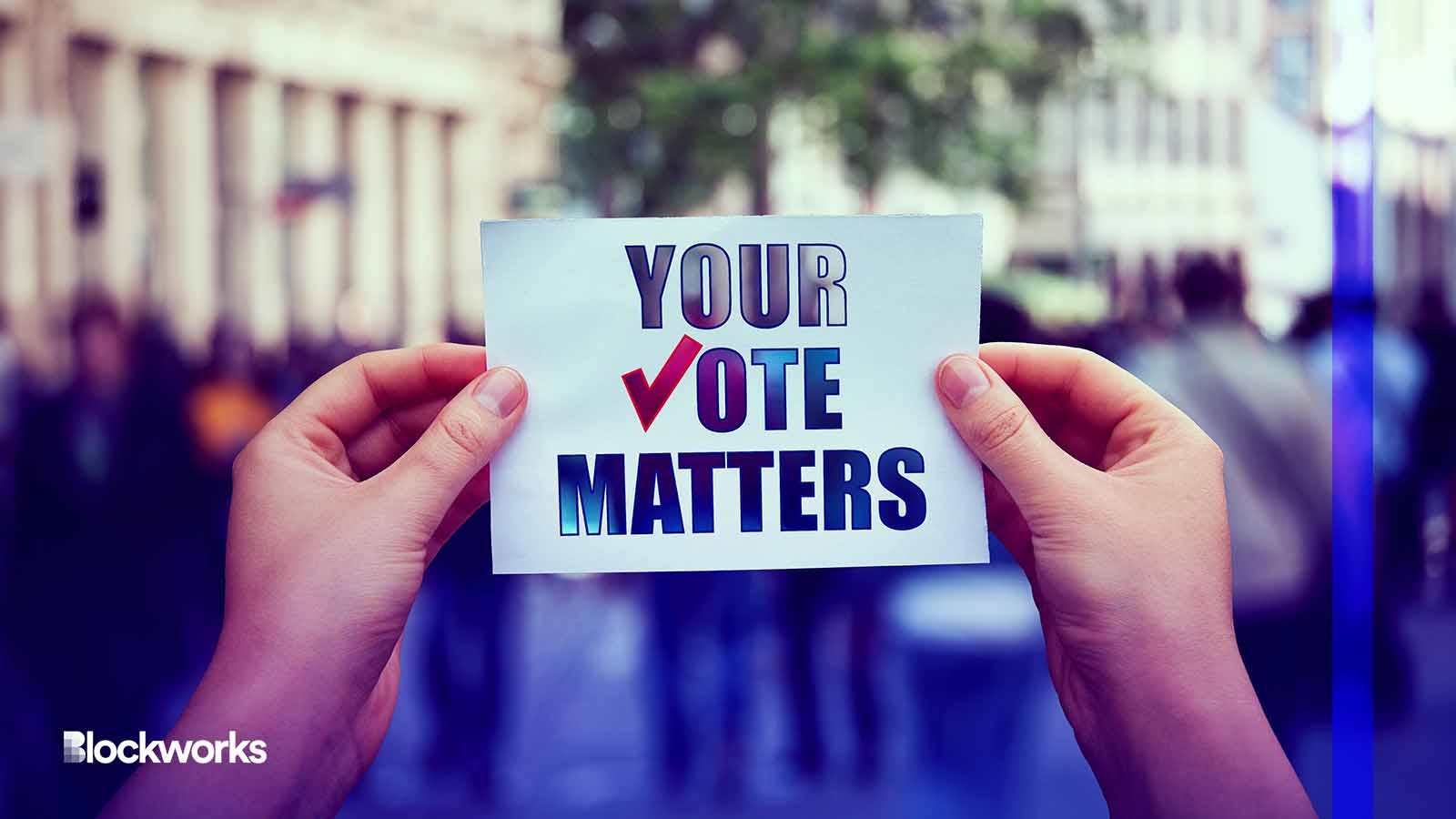Current blockchain governance is ‘a terrible system,’ says JokeRace’s Phelps
Unless you’re a hacker or someone gaming the system in an attempt to “rug a treasury,” David Phelps says, “governance sucks”

StunningArt/Shutterstock modified by Blockworks
Chase Chapman is not terribly enthralled with how most blockchain governance mechanisms operate today. “We think about governance as this design space that people give a shit about, and I just think that’s not really true for the most part.”
The host of the On the Other Side podcast says that during the last crypto bull market, governance was developed and touted as an activity in which people would want to participate, but that isn’t how it’s panned out for the most part.
Speaking to Blockworks on the Lightspeed podcast (Spotify/Apple), Chapman says, “We need to move towards governance as this feature of consumer applications, where it’s built into these experiences.”
“I’ve been thinking a lot about that and how to make governance more fun.”
Unless you’re a hacker or someone gaming the system in an attempt to “rug a treasury,” David Phelps says, “governance sucks.” The co-founder of JokeRace explains that’s why the platform instead uses the term “contests.”
“When you switch it to the word ‘contest,’ you realize,” he says, “everything is a contest.”
“Every social media platform is a contest,” Phelps says. On X, formerly known as Twitter, for example, he says, “you are putting a proposal to the world and saying, ‘What do you think of this?’ And then a bunch of people upload it with this feature called a ‘like’.”
Phelps explains that likes and reposts essentially act as votes. “And so you are in a contest, where you’re competing against everyone else’s content in order to gain visibility.”
Ultimately, social media likes and reposts are governance devices, Phelps says. It’s effectively addictive, Phelps says, and succeeds in enticing people to participate in governance.
Don’t do this
A blockchain is also, ultimately, a contest in itself, Phelps says. “It is like a bunch of transactions all competing to get inclusion in a block.”
Most blockchain DAOs are structured in such a way that users are often only able to vote on boring positions that are irrelevant to the voters themselves, according to Phelps. “And then people are telling you, we need more participation because we need more uninformed people making really boring decisions.”
“What the hell are you guys thinking?” he exclaims. “This is a terrible system. Don’t do this.”
The projects that have managed to build engaging governance tools are the ones who have built it into applications and “not even called it governance,” says Chapman. FWB, or the Friends with Benefits app, springs to mind for Chapman as an example.
“They built in a governance page on the app where you can look at all of the proposals that are happening,” she explains. Governance mechanics should be built natively into applications rather than as a separate experience that “people need to go do” elsewhere, Chapman says.
Phelps says the “ultra great use case” of governance was demonstrated years ago by a recurring event called the “Mirror Write Race” — a weekly showdown between members of the Mirror DAO.
“People would all vie to get a WRITE token, which would allow them to have a publication on Mirror,” Phelps explains. “The really cool thing about this mechanism was if you won, you not only got a WRITE token, but you got to become a voter, as well.”
“What’s really cool about the Mirror Write Race,” Phelps says, “is it’s actually an election in disguise, that’s never marketed as an election.”
The governance activity was marketed as a contest, Phelps says, “but what you’re doing is you’re electing this council.” The group of legitimate users expanded over time and decided who else to bring into the community via the contest mechanism, he explains.
“It is this progressive decentralization, where it includes more and more people over time.”
Things can get really interesting, Phelps says, “when you move beyond governance for governance’s sake, and you get to the point where you’re actually providing value to the people who are participating in governance in some way.”
Get the news in your inbox. Explore Blockworks newsletters:
- The Breakdown: Decoding crypto and the markets. Daily.
- 0xResearch: Alpha in your inbox. Think like an analyst.






